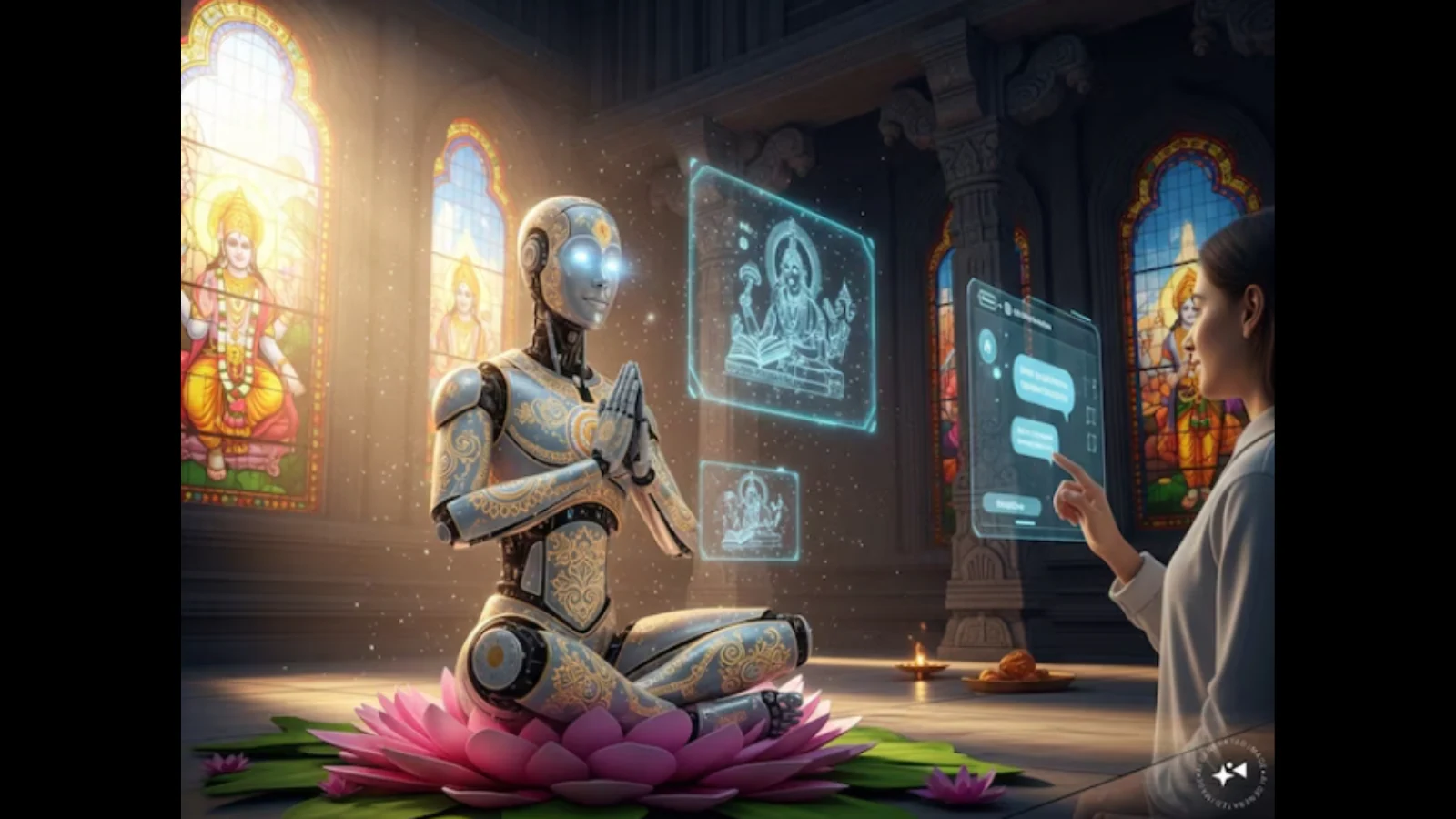Copyright news18

In recent times, searching for ‘religious AI’ reveals tools like GeetaGPT, QuranGPT, Bible chatbots, and many others that not only answer religious queries but also bring centuries-old spiritual wisdom to our phone screens. This fascinating blend of technology and spirituality is reminiscent of the days when we shifted from searching dictionaries to using Google. Now, this technological revolution has entered the realm of spirituality, touching our lives in various ways—from transforming photos into Ghibli style to answering profound questions about life. In a country like India, where religion and culture are integral to life, these religious AI chatbots are making a significant impact. The trend is rapidly catching on, as evidenced by Vikas Sahu, a business student from Rajasthan, who created GeetaGPT as a side project. It has since become a favourite among Hindu devotees. This chatbot, based on the 700 verses of the Bhagavad Gita, offers an AI version of Krishna, providing answers as if Krishna himself were speaking. According to a BBC report, GeetaGPT is deeply connecting people with the Gita. Similarly, Raihan Khan, a 20-year-old from Kolkata, launched QuranGPT during Ramadan in 2023. This app answers questions based on Quranic verses and, according to Scientific American, swiftly reached millions of users. Such tools are also gaining popularity outside India, with Bible.AI for Christian scriptures and BuddhaBot for Buddhist teachings. There are even chatbots for historical figures like Martin Luther and Confucius. In India, an AI version of Lord Shiva is available, and globally, apps like Text with Jesus and Bible Chat have garnered millions of downloads, sometimes surpassing entertainment apps. This digitalisation of faith is particularly notable in a diverse country like India. How Chatbots Work And Why They’re Gaining Popularity These chatbots operate on large language models (LLM) trained on holy scriptures, providing answers in a conversational manner. GeetaGPT responds in Krishna’s voice, while QuranGPT offers advice illuminated by Quranic teachings. The popularity of these technologies stems from their personal touch and convenience—ideal for those with busy lives who may not have time to read books for hours. AI can create prayers tailored to your mood, guide meditation, and even preach. In China, apps like DeepSeek combine AI with fortune-telling, while Western platforms such as Halo charge up to £70 annually for AI-guided prayers. These tools are perfect for young people who spend more time in the virtual world. For the youth in India, who might forget to visit temples but are always on their phones, these tools offer an accessible path to faith, allowing them to experience festivals like Shivratri or discuss Gita verses from home. How AI Is Transforming Religious Experiences AI is elevating religious experiences by providing access to holy scriptures and rituals anytime, anywhere. It offers personal guidance, interactive learning, and even virtual simulations of religious events, such as the ‘AI Jesus’ hologram installed in a church in Switzerland, a concept that could soon be seen in India. These tools foster interfaith dialogue, connecting Hindus, Muslims, and Christians on a single platform to share ideas. Particularly for young people or those in remote areas, these AI tools open new doors to faith. In India, where festivals and worship are integral to life, AI can enhance these experiences. Facing Moral And Spiritual Dilemmas However, there are ethical and spiritual challenges to consider. AI chatbots might misinterpret scriptures, provide incorrect advice, or oversimplify complex teachings, leading to confusion. Turning faith into a commodity—purchasing an app to access divine wisdom—is risky. Experts caution that AI lacks true empathy, moral judgement, and spiritual wisdom, and thus cannot replace human guidance. Increased reliance on these tools could lead to loneliness and weaken community bonds. Therefore, it is crucial to balance digital tools with traditional rituals, as the true essence of devotion lies in temple bells and community gatherings.



